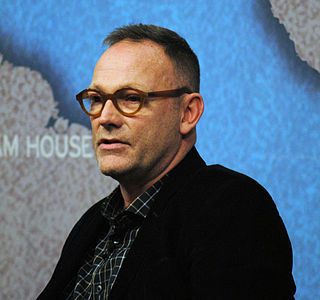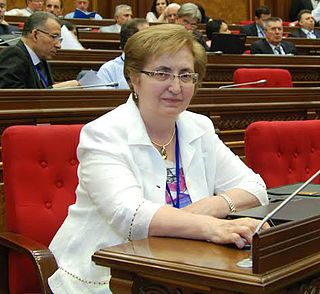
The Council of Europe is an international organisation founded in the wake of World War II to uphold human rights,democracy and the rule of law in Europe. Founded in 1949,it has 46 member states,with a population of approximately 675 million;it operates with an annual budget of approximately 500 million euros.

The European Convention on Human Rights is an international convention to protect human rights and political freedoms in Europe. Drafted in 1950 by the then newly formed Council of Europe,the convention entered into force on 3 September 1953. All Council of Europe member states are party to the Convention and new members are expected to ratify the convention at the earliest opportunity.
International human rights instruments are the treaties and other international texts that serve as legal sources for international human rights law and the protection of human rights in general. There are many varying types,but most can be classified into two broad categories:declarations,adopted by bodies such as the United Nations General Assembly,which are by nature declaratory,so not legally-binding although they may be politically authoritative and very well-respected soft law;,and often express guiding principles;and conventions that are multi-party treaties that are designed to become legally binding,usually include prescriptive and very specific language,and usually are concluded by a long procedure that frequently requires ratification by each states' legislature. Lesser known are some "recommendations" which are similar to conventions in being multilaterally agreed,yet cannot be ratified,and serve to set common standards. There may also be administrative guidelines that are agreed multilaterally by states,as well as the statutes of tribunals or other institutions. A specific prescription or principle from any of these various international instruments can,over time,attain the status of customary international law whether it is specifically accepted by a state or not,just because it is well-recognized and followed over a sufficiently long time.

The European Court of Human Rights,also known as the Strasbourg Court,is an international court of the Council of Europe which interprets the European Convention on Human Rights. The court hears applications alleging that a contracting state has breached one or more of the human rights enumerated in the Convention or its optional protocols to which a member state is a party. The European Convention on Human Rights is also referred to by the initials "ECHR". The court is based in Strasbourg,France.
Evans v. the United Kingdom was a key case at the European Court of Human Rights. The case outcome could have had a major impact on fertility law,not only within the United Kingdom but also the other Council of Europe countries.

Boštjan M. Zupančič is a former Judge at the European Court of Human Rights in Strasbourg,France (1998–2016) and also the President of the Third Chamber at this Court from November 2004 to January 2008.

Iulia Antoanella Motoc is a Romanian lawyer and international law expert,currently a Judge at the European Court of Human Rights and a professor at the University of Bucharest. Before beginning her service at the Court,she served as a Judge at the Constitutional Court of Romania. Motoc was UN Special Rapporteur for the Democratic Republic of the Congo and she chaired a number of international experts bodies and was Vice-President of the UN Human Rights Committee. On 1 October 2013,the Parliamentary Assembly of the Council of Europe elected Motoc a Judge of the European Court of Human Rights with respect to Romania. She received an absolute majority of votes cast by parliamentarians. Her nine-year term of office began on December 18,2013. In August 2021,she was elected as a member of the Institut de Droit International

Maria Rita Saulle was a professor of law and a judge in the Italian Constitutional Court from November 2005 until her death on 7 July 2011.

Jean-Paul Costa is a French jurist and was the President of the European Court of Human Rights from 19 January 2007 until his term at the Court ended on 3 November 2011. He was first appointed a judge of the Court on 1 November 1998,and in 2009 was elected to serve an additional three years as President.
Ann Power is an Irish judge who has served as a Judge of the Court of Appeal since November 2019. She previously served as a Presiding Judge of the Kosovo Specialist Chambers and Specialist Prosecutor's Office from 2017 to 2019 and a Judge of the European Court of Human Rights from 2008 to 2020.
Ledi Bianku was a judge at the European Court of Human Rights,elected in respect of Albania on 1 February 2008.

Róbert Ragnar Spanó is an Icelandic jurist,Judge and President of the European Court of Human Rights. He started his tenure on 18 May 2020,succeeding Judge Sicilianos from Greece. Before beginning his service on the Court on 1 November 2013,he served provisionally as Parliamentary Ombudsman of Iceland and Dean of the Faculty of Law,University of Iceland.

Michael Benedict Emmerson CBE QC is a British barrister,specialising in public international law,human rights and humanitarian law,and international criminal law. From 2011 to 2017,he was the UN Special Rapporteur on Human Rights and Counter-Terrorism. Emmerson is currently an Appeals Chamber Judge of the UN Mechanism for International Criminal Tribunals sitting on the Criminal Tribunals for the Former Yugoslavia and Rwanda. He has previously served as Special Adviser to the Prosecutor of the International Criminal Court,and Special Adviser to the Appeals Chamber of the ECCC.

Alvina Gyulumyan is an Armenian judge born in the village of Shaumyan in Azerbaijan's Dashkesan region and currently Judge at the Constitutional Court of Armenia. From April 2003 to 1 November 2014 she was the Judge of European Court of Human Rights in respect of Armenia. According to the Decree of the President of Armenia on 23 April 1998,Alvina Gyulumyan was awarded The High Judicial Qualification of a Judge. Alvina Gyulumyan is married and has one daughter A.S.

Ganna (Anna) Yuriyivna Yudkivska is a Ukrainian judge born in Kyiv. She is currently the judge of the European Court of Human Rights in respect of Ukraine.
Paulo Pinto de Albuquerque is a Portuguese judge born in Beira,Mozambique and was the judge of the European Court of Human Rights in respect of Portugal from April 2011 to March 2020.
Linos-Alexandre Sicilianos is a Greek judge born in Athens,Greece,member of the European Court of Human Rights in respect of Greece.
Giovanni Grasso is an Italian judge,serving as international judge of the Constitutional Court of Bosnia and Herzegovina from 2016 to 2020.
In the case of Hirsi Jamaa and Others v. Italy,before the European Court of Human Rights,the Grand Chamber of the Court found in February 2012 that by returning migrants to Libya,without examining their case,the state of Italy exposed the migrants to the risk of ill-treatment and amounted to a collective expulsion. The case concerned 24 migrants from Somalia end Eritrea that were travelling from Libya to Italy that were intercepted at sea by Italian authorities who sent them back to Libya.
Judge Rapporteur or Judge-Rapporteur is a term for one of Judge in Panel or Chamber of Judges,who is nominated to write case report as rapporteur for other Judges,usually in European courts.











